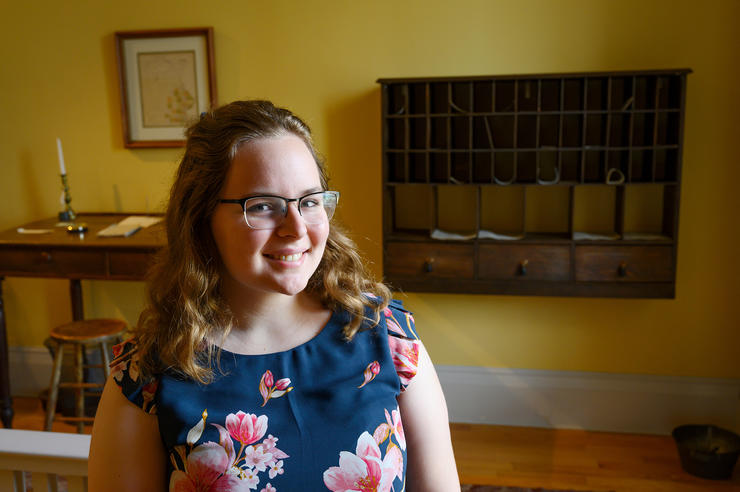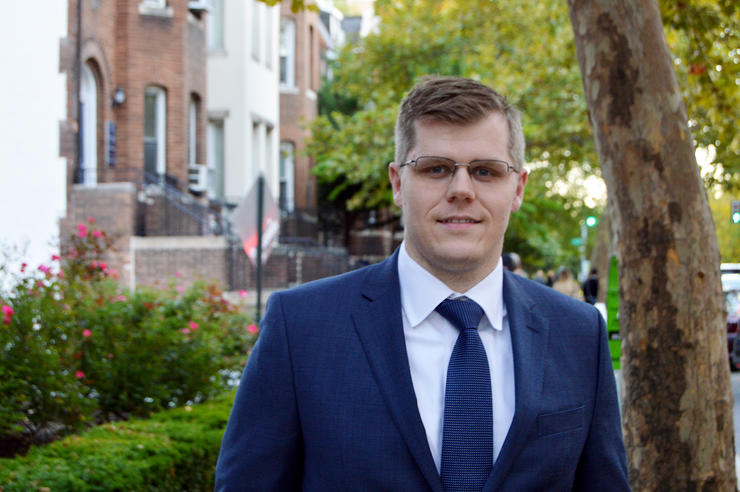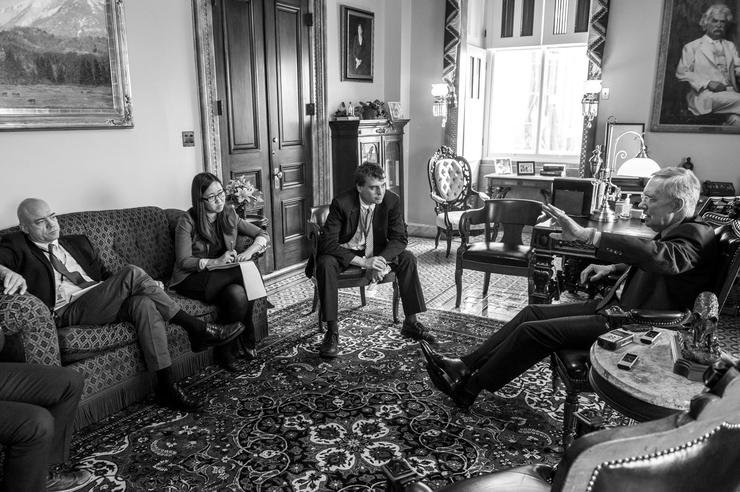Iowa law students learn about life and the law in D.C.
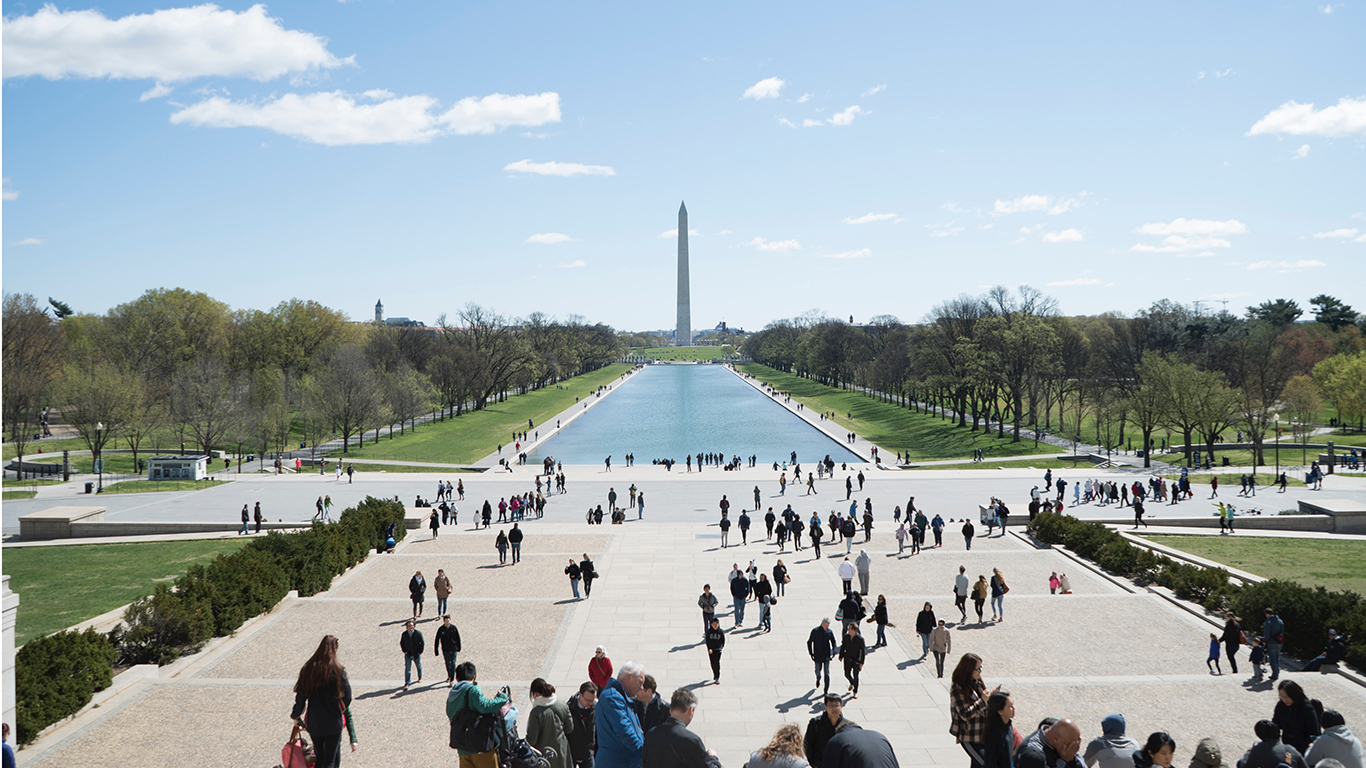
Every four years, the political world comes to Iowa for the caucuses.
But rarely did students from the University of Iowa College of Law work as externs in Washington, D.C., the center of the political world. This didn’t make sense to Kevin Washburn, dean of the College of Law.
“Part of our competitive advantage as a law school is that Iowa has the first-in-the-nation caucuses. But we needed to capitalize more on that,” says Washburn, who was part of the political world himself as assistant secretary of Indian affairs in the U.S. Department of the Interior from 2012 to 2016.
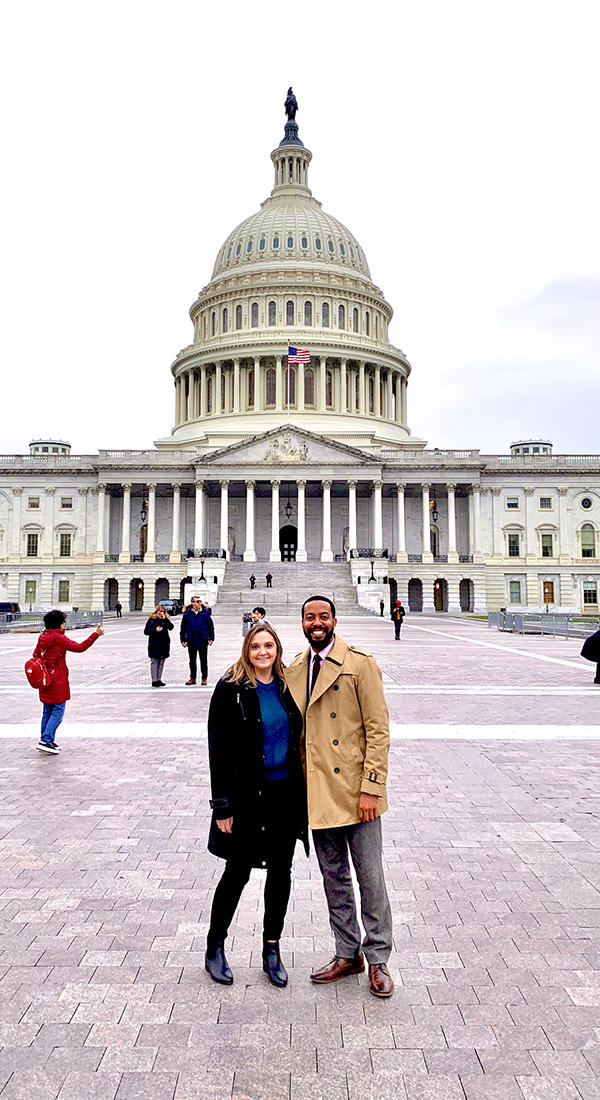
University of Iowa third-year law students Brittany Martin and Justin McCorvey were members of the D.C. Field Placement Program’s first cohort. Martin, from Monona, Iowa, worked as a legal intern for the Center for Democracy and Technology, and McCorvey worked as a legal fellow for Rep. Terri Sewell, who represents part of his home district in Birmingham, Alabama.
He imagined a formalized field placement program to connect third-year Iowa law students with Congressional offices, federal agencies, and public advocacy organizations in the capital. He asked around with legal educators and lawmakers who agreed the proposal had merit. Sen. Chuck Grassley and staff of Sen. Joni Ernst seemed supportive, “and I learned that actually anyone interested in running for president is interested in Iowa law students, including about 98 other senators.”
So the college developed its first program for students to spend a semester working in Washington. The D.C. Field Placement Program saw its first six students participate in the fall of 2019.
“There are all kinds of ways of using a law degree in Washington, and a program like this exposes students to those options,” Washburn says. The students worked on Capitol Hill and with federal agencies, the federal courts, and advocacy groups. The experience provided a firsthand look at a Washington practice and deepened students’ understanding of federal law.
They also learned about life in D.C.: getting caught in traffic, waiting on the platform for behind-schedule Metro trains, finding their favorite restaurants, and watching the hometown Nationals win the World Series. They toured the U.S. Supreme Court building and the White House, and Tom Wickham—the House of Representatives’ parliamentarian and a 1994 College of Law graduate—gave a behind-the-scenes tour of the Capitol.
Kate Mueting, a partner in the Washington office of the firm Sanford Heisler Sharp, taught a weekly class that helped participants learn how law is practiced in the nation’s capital.
“It was a valuable experience in learning about working in and around the federal government: how to get jobs and how to be successful in those jobs,” says Mueting, a 2007 College of Law graduate. “How do people get jobs on the Hill as opposed to federal agencies? What’s the difference between a civil servant and a political appointee? Those are questions they have to think about when they consider their careers in Washington.”
Mueting also introduced the Iowa students to 12 other College of Law alumni who currently work in Washington, to share their working experiences and help expand their professional networks. She says it’s a testament to the law school that she had no problem filling her weekly class with visits from well-placed alumni.
“I was overwhelmed at how willing Iowa alums were to help with the class,” Mueting says.
“My passion is politics and policy, and it’s hard to start a career doing that when you’re not on the ground in Washington. Now I can show future employers with my time on the Hill that I have experience doing that.”
The students had placements with a member of Congress, the American Bar Association Rule of Law Initiative, the Transportation Security Administration, the antitrust division of the U.S. Department of Justice, the Center for Democracy and Technology, and the Federal Circuit of the U.S. Court of Appeals.
Justin McCorvey worked as a legal fellow for Rep. Terri Sewell, who represents part of his home district in Birmingham, Alabama, and sponsored the Voting Rights Advancement Act during the current term. McCorvey spent much of his tenure working on the bill, which restores to the Voting Rights Act of 1965 certain provisions struck down by the U.S. Supreme Court that ensure fairness for disenfranchised voters, especially African American voters within Sewell’s district.
He saw his hard work pay off Dec. 6, 2019, when he stood in the gallery of the House and watched as lawmakers approved the bill. Though it is unlikely to make it through the Republican-controlled Senate, McCorvey says it was still a thrill to work on legislation that at least starts the process of restoring a key part of important civil rights legislation.
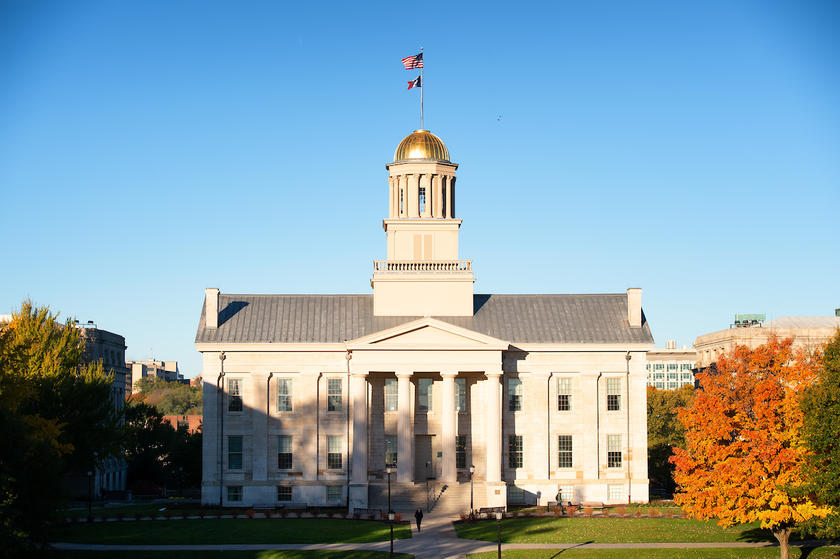
Iowa will prepare you, challenge you, and change you. You will change the world. We accept applications year-round, and are currently admitting new students for the following fall semester.
“It feels great to see it get across the finish line,” he says. “It was especially exciting to see John Lewis gavel in the final vote count. It was truly inspiring to see a giant within the civil rights movement witness the restoration of a bill that he risked his life for.”
McCorvey worked on other projects for Sewell too, researching the law, writing position papers, and giving presentations to other staff members. He learned much during his placement, from how a bill is crafted to which Metro line gets him to his apartment the quickest. And he learned that he wishes to return to Washington after he graduates and be a part of the lawmaking process.
“My passion is politics and policy, and it’s hard to start a career doing that when you’re not on the ground in Washington,” he says. “Now I can show future employers with my time on the Hill that I have experience doing that.”
Brittany Martin spent the fall with a think tank focused on internet policy, and her work took her to the Capitol, too. As a legal intern for the Center for Democracy and Technology, her research about data privacy law was part of testimony the organization’s Michelle Richardson delivered before the U.S. Senate Commerce Committee. Martin researched several cybersecurity bills pending before Congress and compared their provisions, work that she says seemed to make an impact with senators.
“It seems like there’s bipartisan support for security and privacy legislation,” says Martin, a native of Monona, Iowa.
The D.C. Field Placement Program provides students an opportunity to spend a semester in D.C. with a cohort of classmates while acquiring exposure to the unique legal environment of the nation’s capital. Visit the University of Iowa College of Law website to learn how to apply for fall 2020.
She also researched the potential impact of a consumer privacy law that will take effect in 2020 in California, and compared U.S. cybersecurity and privacy laws to European Union regulations. She says most of the work was used internally to help the organization draft policy papers and proposals.
Martin says her goal in participating in the field experience was to learn more about privacy law and policy and get a more up-close view of the law and the lawmaking process.
“My goal was to figure out what the conversation looks like outside the academic experience, and it showed me that,” she says.
Like McCorvey, Martin plans to return to Washington for a career in some part of the law and policy-making process, once she completes a clerkship for a judge in the Southern District of Iowa following her graduation.
Washburn expects six to eight third-year students will be selected for D.C. placements every fall in the future.
